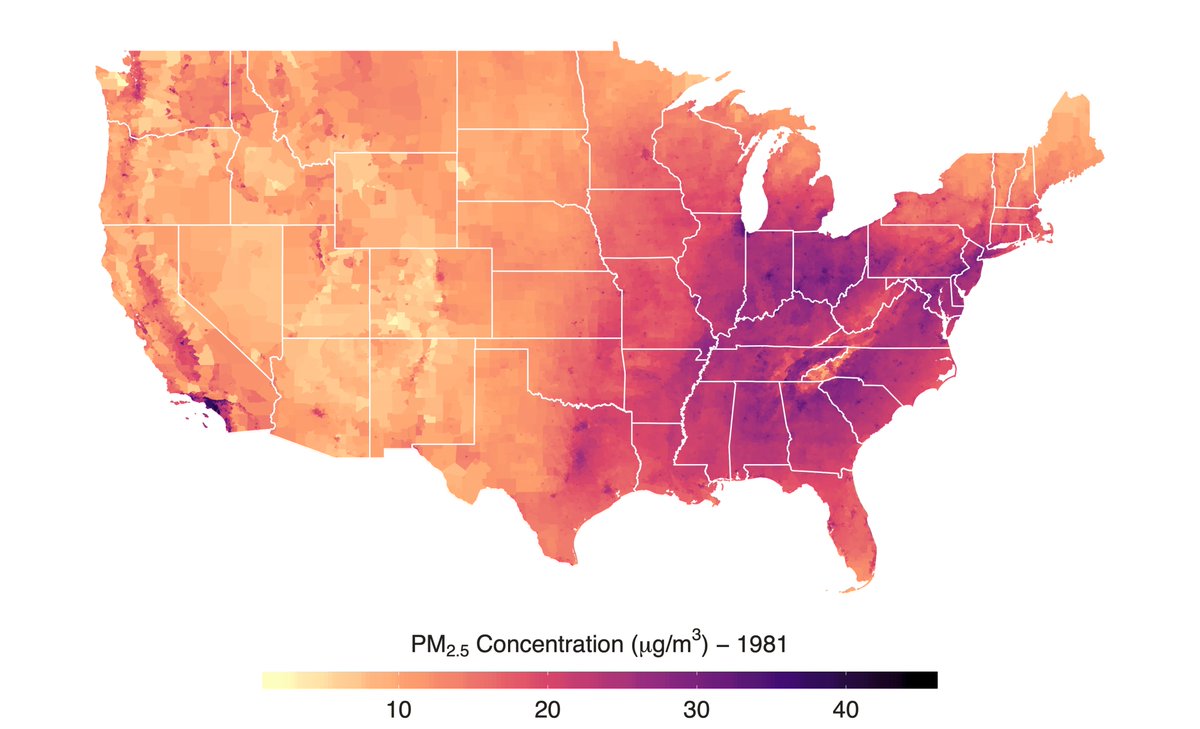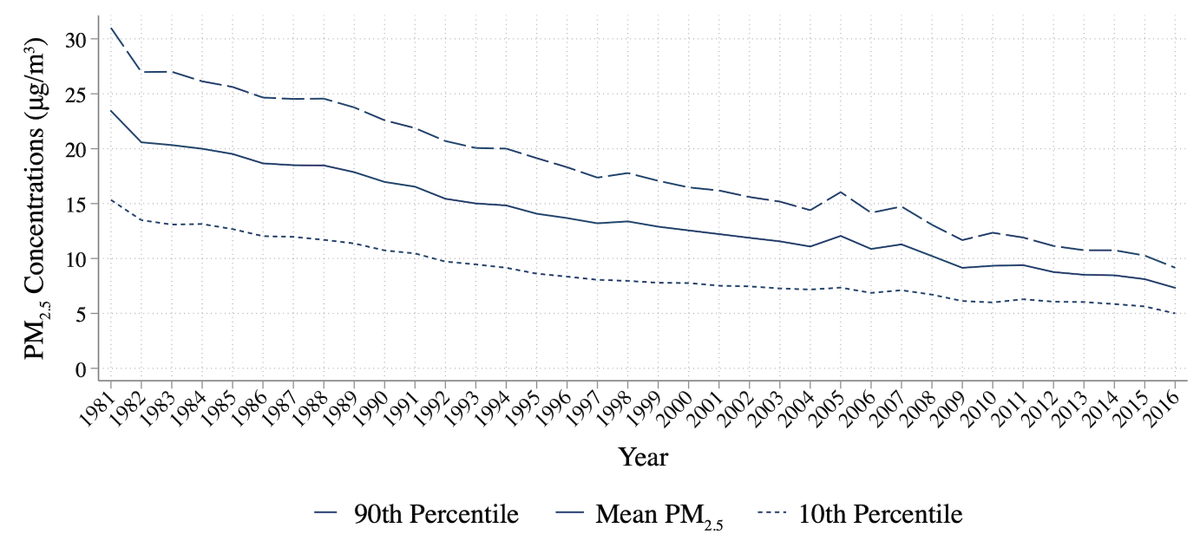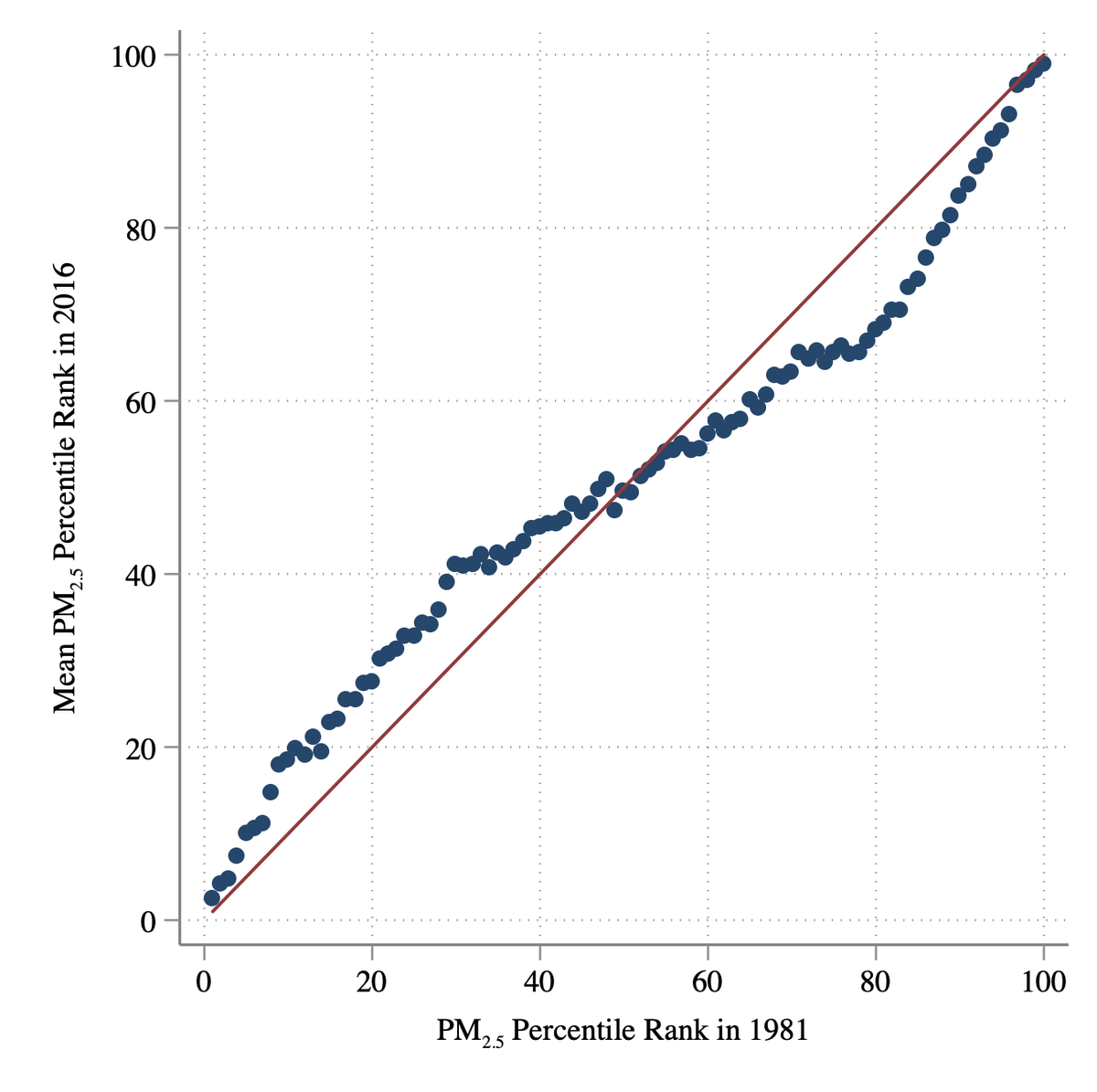Very excited about our new paper out in @ScienceMagazine! "Disparities in PM2.5 air pollution in the United States” with @IanHHardman, @jayshimshack, & @john_voorheis! While there have been substantial reductions in PM2.5, meaningful disparities persist. https://science.sciencemag.org/content/369/6503/575
We know that air pollution is bad for health, wealth, and productivity. We also know that air pollution is unequally distributed across locations and across people. However, we haven’t known how disparities have changed over time. We wanted to understand this in a systematic way.
To do this we exploited new data that captures PM2.5 concentrations at more than 8.6 million locations in the U.S. for 36 years.
First, we show that fine particle matter pollution concentrations in the United States have declined by roughly 70% since 1981. This reduction has also reduced absolute PM2.5 gaps between the most/least polluted locations and for some, but not all, disadvantaged groups.
While this is good news for health, wealth, and productivity, we also care about relative disparities. Fairness, equity, and justice are relative concepts. We care about who is advantaged/disadvantaged. Pollution disparities translate into health, economic and social disparities.
To explore relative disparities, we ranked each neighborhood from most polluted to least polluted for every year that we had data. We then evaluated how these rankings changed between 1981 and 2016, and found that they remained remarkably persistent.
The most polluted areas in 1981 are still the most polluted. The disadvantaged communities that were exposed to more pollution in 1981 are still more exposed to more pollution today.
Communities that were disadvantaged in 1981 remain exposed to higher levels of pollution today. If anything, relative disparities have worsened for poorer and Hispanic communities.
Relative disparities matter from a policy perspective. Reducing disparities has been a stated goal of U.S. environmental policy for decades. We are falling short. https://www.epa.gov/environmentaljustice/learn-about-environmental-justice
Overall, our findings call attention to the scope, scale, and remarkable persistence of air pollution disparities in the United States. Knowing “what” is the first step. We need clearer answers to “why". We need better answers to these questions. Thanks!

 Read on Twitter
Read on Twitter




